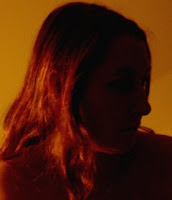BOOK REVIEW: Unlikely Utopia: the Surprising Triumph of Canadian Pluralism

Environics pollster, Michael Adams, is known for his other books, Sex in the Snow: The Surprising Revolution in Canadian Social Values, and American Backlash: The Untold Story of Social Change in the United States. While, I really enjoyed one of Adams’ last book Fire and Ice: The United States, Canada and the Myth of Converging Values, I was somewhat disappointed with this book.
In Fire and Ice Adams dedicated an entire chapter to Methodology. As a student of statistics and economics, I am very skeptical of anyone who uses statistics. I am always pleased to see a methodology section, as it is much more transparent of the researcher/pollster/author. What makes this book different from Fire and Ice is that it uses a bunch of Census and Stats Can data, instead of primarily a research poll for the premise of the book.
There was not enough citation of sources and methodology in the book. Anyone can manipulate StatsCan and Census data to make it say what they want; depending on the variables they choose (or choose to drop). For instance, Adams tries to make a point (Chapter 2) with using Census data of the percentage of the Canadian population who are foreign-born (19.3%) compared to the number of federal MPs who were foreign born (13%). To make a fair comparison, you should compare the Canadian foreign-born adult population with the number of MPs, otherwise your statistics would, of course, be lower with a large number of children in that population statistic, who could not be MPs. There are several examples of simplistic uses of statistics—which I won’t bore you with in this review—that without a critical eye, one would just accept the “facts” how they are being presented.
Adams further uses this argument with other countries and then conducts a micro argument of taking these 308 MPs and stating that we have 41 foreign-born MPs—pointing out that if it “truly” mirrored the country we would have 55 foreign-born MPs—and then names off how many we have from each continent/region (20 from Europe, 9 from Asia and so forth)—pointing out that if it “truly” mirrored the country it would be 25 from Europe, 22 from Asia and so forth. But there is no source listed with how he obtained this information (whether it was a Wikipedia search or a more legitimate source). Further it is a fallacious argument that our political representatives should or must represent us through gender and ethnicity, when you vote for someone to represent your ideas, not your ethnic heritage/gender/race or other category. To say that we need X number of MPs born in X region assumes that all foreign-born MPs from X region will act, think or represent in the same way. This is silly! The concept of ‘representation’ has lost its original meaning and has been manipulated to think that we need perfect “representation” in order for it to be “equal” or “fair.” This of course has led to quotas or “targets”, affirmative action and other manipulations of the system to achieve this idea of “equality.”
Adams opens by stating that multiculturalism is easily blamed for social problems: “Creeping racial segregation? Blame multiculturalism. Gangs in schools? Diminished civic engagement? Global terror? Must have something to do with multiculturalism…” Adams points out how problematic this is. While I agree, it’s too bad the same criticism isn’t done when things like global warming being blamed for everything.
Adams dedicates a chapter to Muslims and another chapter to Quebec, this book clearly identifies many of the contentious issues regarding multiculturalism in Canada, however there is a clear (unadmited) bias and assumptions. For instance, “the current identity crisis isn’t about whether white, European, Christian Canada can survive the presence of ‘Others.’ That question has long since been resolved.” Actually, Mr. Adams, with the simple example of the erosion of Christmas cards, Christmas trees, and Christmas school plays to becoming “holiday” cards/trees/plays, I believe Canada’s identity crisis actually has something to do with the survival of Euro-Christian culture!
I did like Adam’s distinction between the Paris youth riots and 9/11. He argues that a terrorist attack does not tell us how newcomers or minority group are doing. He states that had male youth from North Africa had the same job opportunities as white French youth and felt a part of French society, the Paris riots likely would have never happened. However, if every Muslim in the US had the above described opportunities, 9/11 very likely still would have happened. His point is, “discussions about terrorism are important, but they’re not at the bottom discussions about migration, diversity, and multiculturalism.”
Adams admits, “this book isn’t the work of a historian or a futurist; it is the work of a pollster who, decidedly not an academic, at times aspires to be considered a social scientist.” Unfortunately, in an effort to make a book appeal to the general Canadian population, the “scientist” part is gone and all that is left is a “social book”—something to talk to people about at your next dinner party, but ultimately, not worth a whole lot.
Running at 152 pages (180 with the index, appendix, notes and acknowledgement), it was a quick—and disappointing—read. I would still recommend this book, but borrow it from the library.
Overall Rating: 6/10







